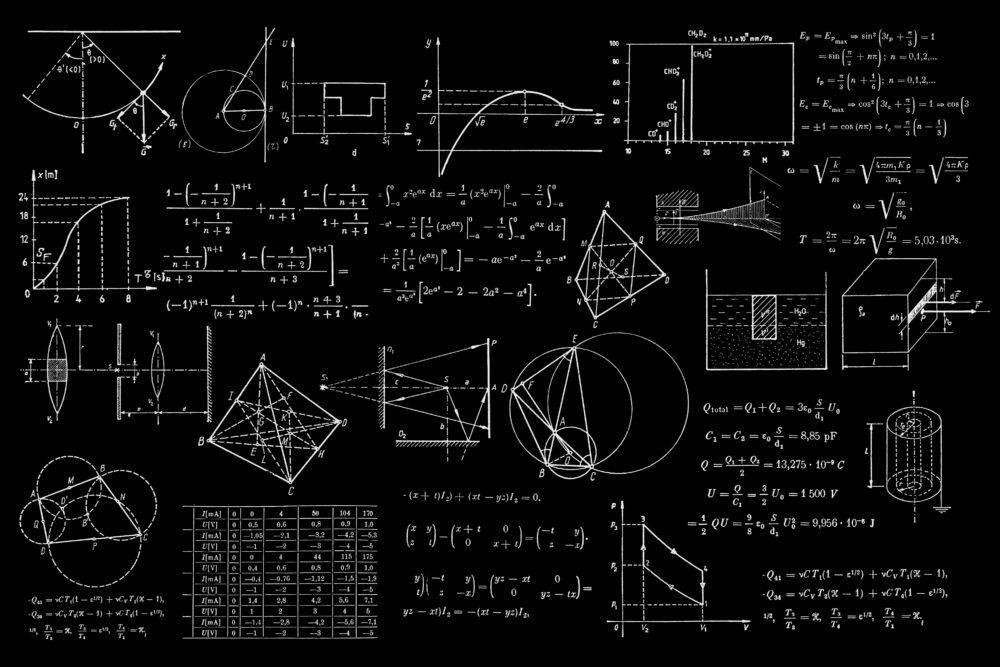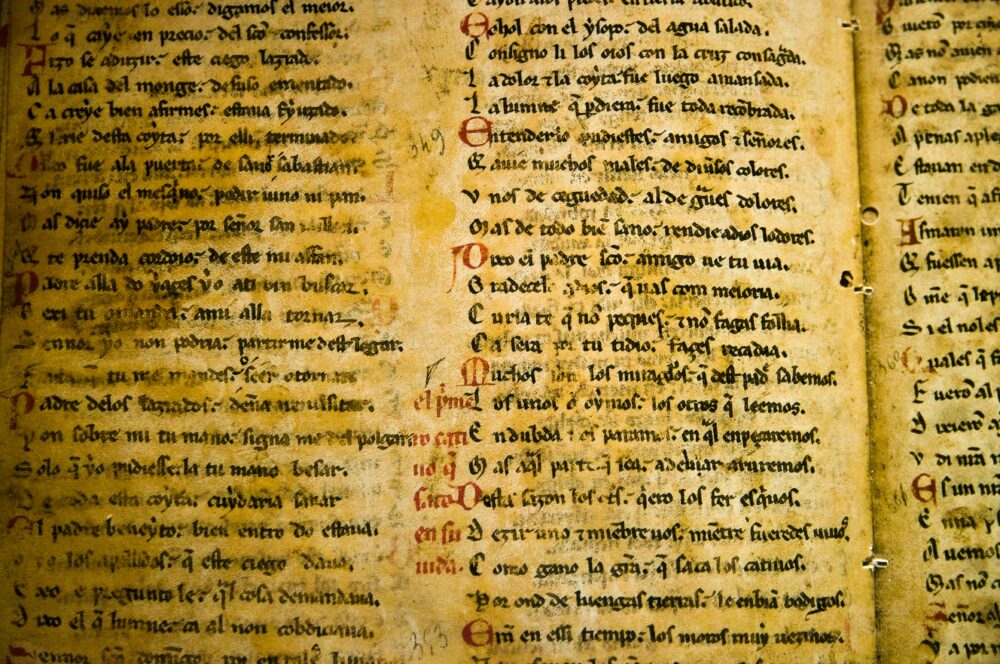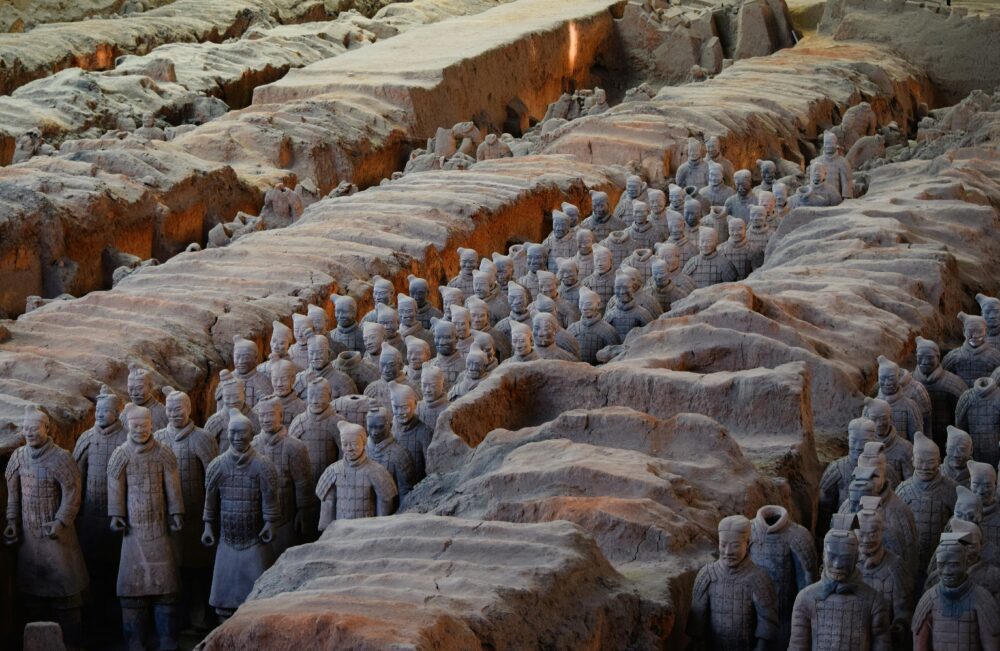The legacy of ancient civilizations extends far beyond the confines of history books, with their innovations and cultural influences still evident in our modern world. From architecture to technology, ancient societies have left an indelible mark on the way we live today. Here are twelve unexpected ways ancient civilizations have shaped our modern world, proving that the echoes of the past continue to resonate in the present.
1. Numerical Systems

The numerical systems we use today are largely based on those developed by ancient civilizations such as the Babylonians and Egyptians. The Babylonians, for example, introduced a base-60 system that formed the basis for our modern system of time measurement, with 60 seconds in a minute and 60 minutes in an hour. Similarly, the ancient Egyptians developed a decimal system that laid the foundation for modern arithmetic and mathematics. Without these early innovations in numerical systems, the modern world as we know it would not exist.
2. Written Language

The invention of writing by ancient civilizations such as the Sumerians and Egyptians paved the way for the development of written language and communication. The cuneiform script developed by the Sumerians in Mesopotamia is considered one of the earliest forms of writing and influenced the development of writing systems in neighboring civilizations. Similarly, the hieroglyphic script used by the ancient Egyptians is one of the oldest known writing systems and provided the basis for the development of the modern alphabet. Without the invention of writing by these ancient civilizations, the transmission of knowledge and ideas across generations would have been significantly limited.
3. Architecture

Many of the architectural techniques and styles used by ancient civilizations continue to influence modern architecture. The ancient Greeks, for example, developed the classical orders of architecture, including the Doric, Ionic, and Corinthian styles, which are still used in buildings around the world today. Similarly, the Romans perfected the use of arches, domes, and concrete, techniques that are still employed in modern construction. The architectural achievements of ancient civilizations not only showcase their engineering prowess but also serve as a lasting testament to their cultural and artistic achievements.
4. Democracy

The concept of democracy, or rule by the people, has its roots in ancient Greece, where the city-state of Athens developed one of the earliest forms of democratic government. In Athens, citizens participated directly in the decision-making process through assemblies and councils, laying the foundation for modern democratic systems of government. The principles of democracy espoused by ancient Greek philosophers such as Plato and Aristotle continue to influence political thought and governance today. The legacy of Athenian democracy serves as a reminder of the enduring power of citizen participation and accountability in government.
5. Urban Planning

The urban planning techniques developed by ancient civilizations continue to shape modern cities and infrastructure. The grid system used by the ancient Romans, for example, laid the foundation for the layout of many modern cities, with straight streets intersecting at right angles. Similarly, the Indus Valley civilization in ancient India developed sophisticated drainage systems and planned cities with well-defined streets and public spaces. These early urban planning techniques demonstrate the importance of thoughtful design and infrastructure in creating livable and sustainable cities.
6. Medicine

Ancient civilizations made significant contributions to the field of medicine, laying the groundwork for modern medical practices and treatments. The ancient Egyptians, for example, developed advanced surgical techniques and medical instruments, such as scalpels and forceps, that are still used in surgery today. Similarly, the ancient Greeks made important advancements in the study of anatomy and physiology, laying the foundation for modern medical science. The knowledge and practices of ancient civilizations continue to inform and inspire medical research and innovation in the modern world.
7. Agricultural Practices

The agricultural practices developed by ancient civilizations revolutionized food production and distribution, laying the foundation for modern agriculture. The ancient Sumerians, for example, developed irrigation systems and crop rotation techniques that increased agricultural productivity and allowed for the growth of urban centers. Similarly, the Inca civilization in South America developed terraced farming methods that allowed them to cultivate crops in mountainous regions. These early agricultural innovations continue to shape modern farming practices and contribute to global food security.
8. Legal Systems

The legal systems developed by ancient civilizations laid the foundation for modern legal principles and practices. The Code of Hammurabi, created by the Babylonian king Hammurabi in ancient Mesopotamia, is one of the earliest known legal codes and established the concept of written laws and legal accountability. Similarly, the Twelve Tables, a set of laws created by the ancient Romans, influenced the development of legal systems in Europe and beyond. The principles of justice, fairness, and the rule of law established by these ancient legal systems continue to be upheld in modern legal systems around the world.
9. Astronomy

Ancient civilizations made significant contributions to the field of astronomy, laying the foundation for our understanding of the universe. The ancient Greeks, for example, developed the geocentric model of the universe, which posited that the Earth was the center of the cosmos. While this model has since been replaced by the heliocentric model developed by Copernicus and Galileo, the observations and mathematical principles of ancient astronomers continue to inform our understanding of celestial bodies and phenomena. The legacy of ancient astronomy serves as a testament to human curiosity and ingenuity in seeking to understand the cosmos.
10. Trade Routes

The trade routes established by ancient civilizations facilitated the exchange of goods, ideas, and culture across vast distances, laying the foundation for globalization and interconnectedness in the modern world. The Silk Road, for example, connected the civilizations of Asia, Europe, and Africa, facilitating the exchange of silk, spices, and other valuable commodities. Similarly, the maritime trade routes of the Mediterranean connected the civilizations of the ancient world, fostering cultural exchange and economic prosperity. The legacy of these ancient trade routes continues to shape global commerce and cultural exchange in the modern era.
11. Philosophy

Ancient civilizations made significant contributions to philosophy, laying the groundwork for modern philosophical thought and inquiry. The ancient Greeks, for example, developed philosophical concepts such as ethics, metaphysics, and epistemology that continue to influence philosophical discourse today. Philosophers such as Socrates, Plato, and Aristotle explored fundamental questions about the nature of reality, morality, and the human condition, establishing a rich tradition of philosophical inquiry that endures to this day. The legacy of ancient philosophy serves as a testament to the enduring pursuit of knowledge and wisdom by human beings throughout history.
12. Engineering

The engineering feats achieved by ancient civilizations continue to inspire awe and admiration in the modern world. The construction of monumental structures such as the pyramids of Egypt, the Great Wall of China, and the aqueducts of ancient Rome demonstrate the ingenuity, skill, and resourcefulness of ancient engineers. These architectural marvels not only showcase the technological advancements of their time but also serve as enduring symbols of human achievement and ambition. The legacy of ancient engineering continues to inspire modern architects and engineers in their quest to push the boundaries of what is possible.
Influence of Ancient Civilizations

In conclusion, the influence of ancient civilizations on the modern world is profound and far-reaching, encompassing everything from language and architecture to philosophy and engineering. By studying the achievements and innovations of ancient civilizations, we gain a deeper understanding of our shared human history and the enduring impact of our ancestors’ contributions to civilization. As we continue to navigate the complexities of the modern world, it is important to remember and honor the legacies of those who came before us, whose innovations and insights continue to shape our lives in unexpected ways.
Read More:
- Reading the Economic Tea Leaves – What the Numbers Tell Us
- Whiskey & Wealth Club Review – Good Whiskey Investment or Scam?
- Baby Boomers Are Making Aging Looking Great: Here Are Their Top 10 Tips
Read the full article here
















